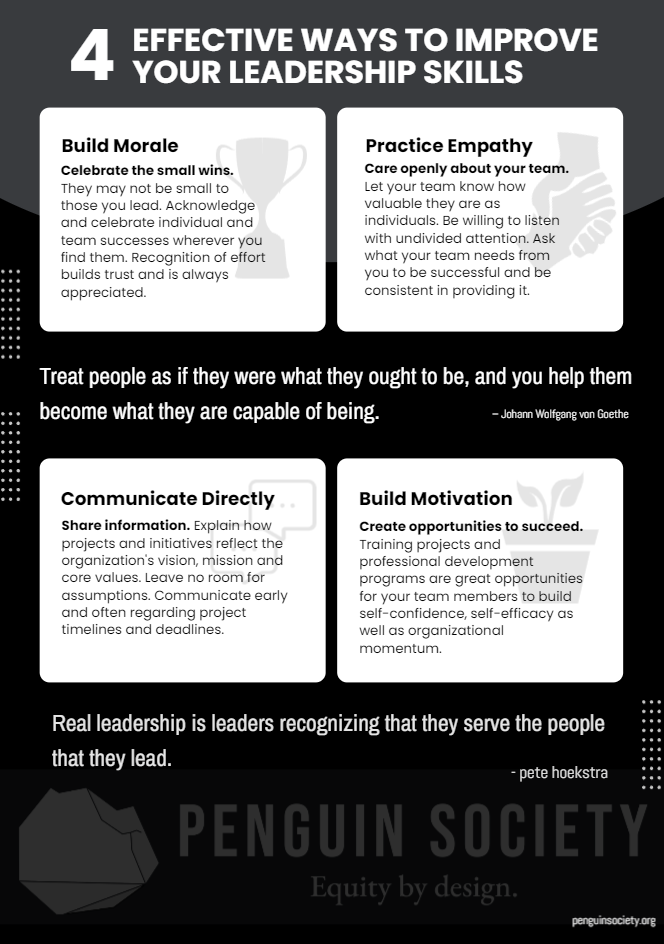Leadership Focus: The Big Four
Empathy
While it goes without saying, the skill of putting yourself in someone else’s shoes gets rusty pretty often in leadership positions. Leaders can quickly become accustomed to having their directives followed with little or no afterthought as to how it gets done. This lack of afterthought for your subordinates can quickly translate to “I’m replaceable and leadership doesn’t care about me as a person".
Why Practice Empathy?
Practicing empathy allows you to view yourself, your leadership style and your organization as a whole through the eyes of your followers. By emphasizing to your team members that they have intrinsic value as people in addition to being an asset to the organization, you build a stronger relationship built on trust and respect.
Morale
Morale refers to the team’s faith in each other and in leadership. Team members who feel that nothing they accomplish is ever acknowledged and celebrated, can lose faith in their leaders, as well as the organization’s mission and vision. An organization devoid of morale is much likelier to have a higher turnover rate and a disturbing percentage of employees engaging in “quiet quitting”.
How Does Morale Affect the Organization?
While a win for your team members might seem small to you as a leader in the grand scheme of things, they are not small for those you lead. Acknowledge and celebrate individual and team successes wherever you find them. Recognition of effort builds trust and reassures followers that you see them as capable and confident. In return, this restores follower faith in leadership.
Communication
Completely preventable issues can occur consistently in a workplace with poor communication. From missed project deadlines to stagnating production, a lack of communication can be devastating on an organizational level.
Why is Communication Important?
Communication isn’t just about keeping your team in the loop, it’s about explaining the purpose and reasoning behind projects and organizational initiatives. It’s what keeps your team members feeling like part of the team. Don’t be afraid to get into the details with your team members. Clarify, explain and share how what they do reflects the organization’s mission, vision and core values. Let them know you trust them enough to share information with them. Communicating early and often regarding project deadlines leaves no room for assumption.
Motivation
Good leaders encourage followers to succeed. Great leaders create opportunities for their followers to succeed. When followers feel there is no opportunity for progression within the organization, it can be devastating for individual self-confidence, but it is debilitating for the organization as a whole.
How Do I Build Motivation?
Training projects and professional development programs are excellent opportunities for your team members to build self-confidence, self-efficacy as well as organizational momentum.
Which focus is most important?
The four focuses of leadership are in no particular order. Each focus is equally important. Taken together, they form the foundation of a solid relationship between leaders and followers that is genuine and long-lasting. The details in these separate focuses, while seemingly inconsequential, can make or break working relationships.
“Treat people as if they were what they ought to be, and you help them become what they are capable of being.”


